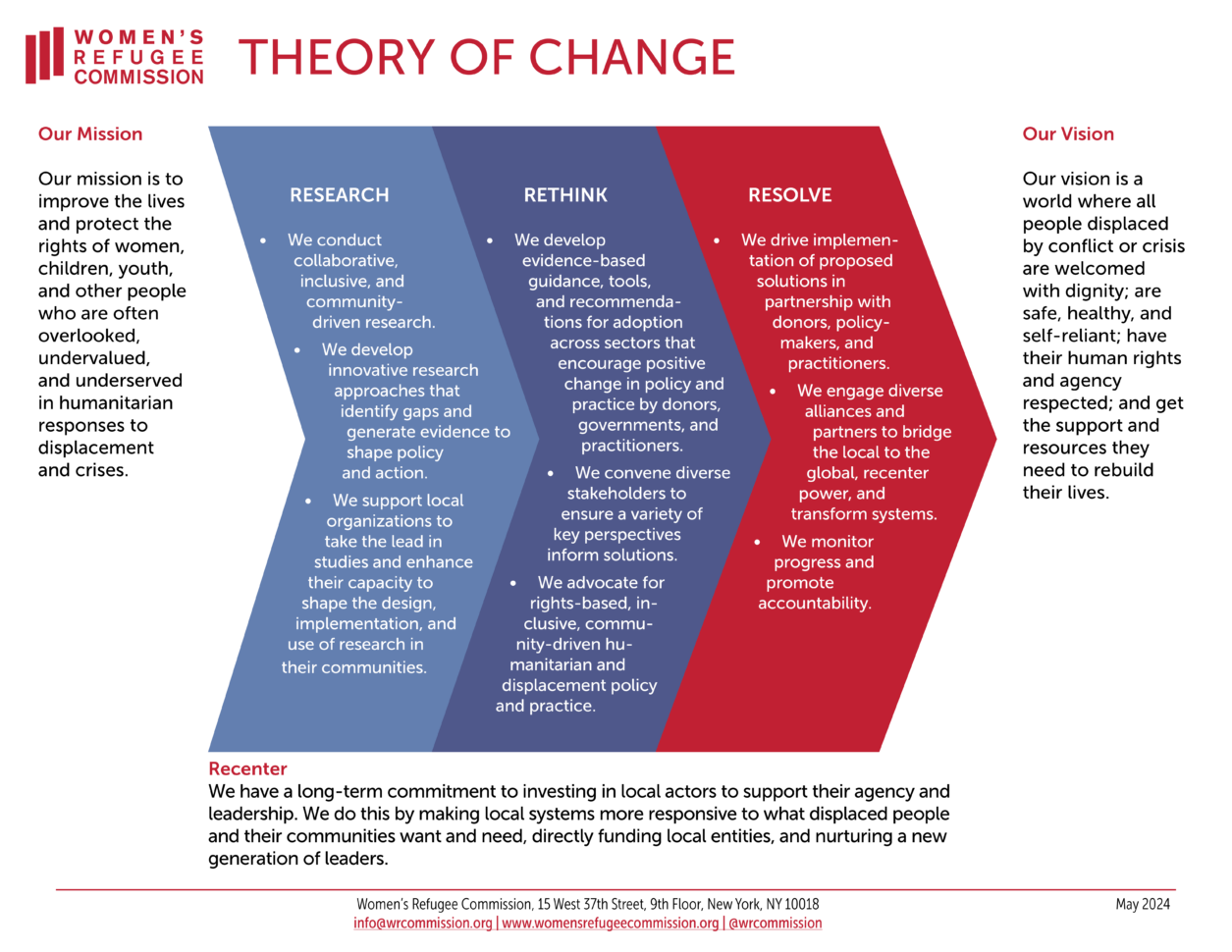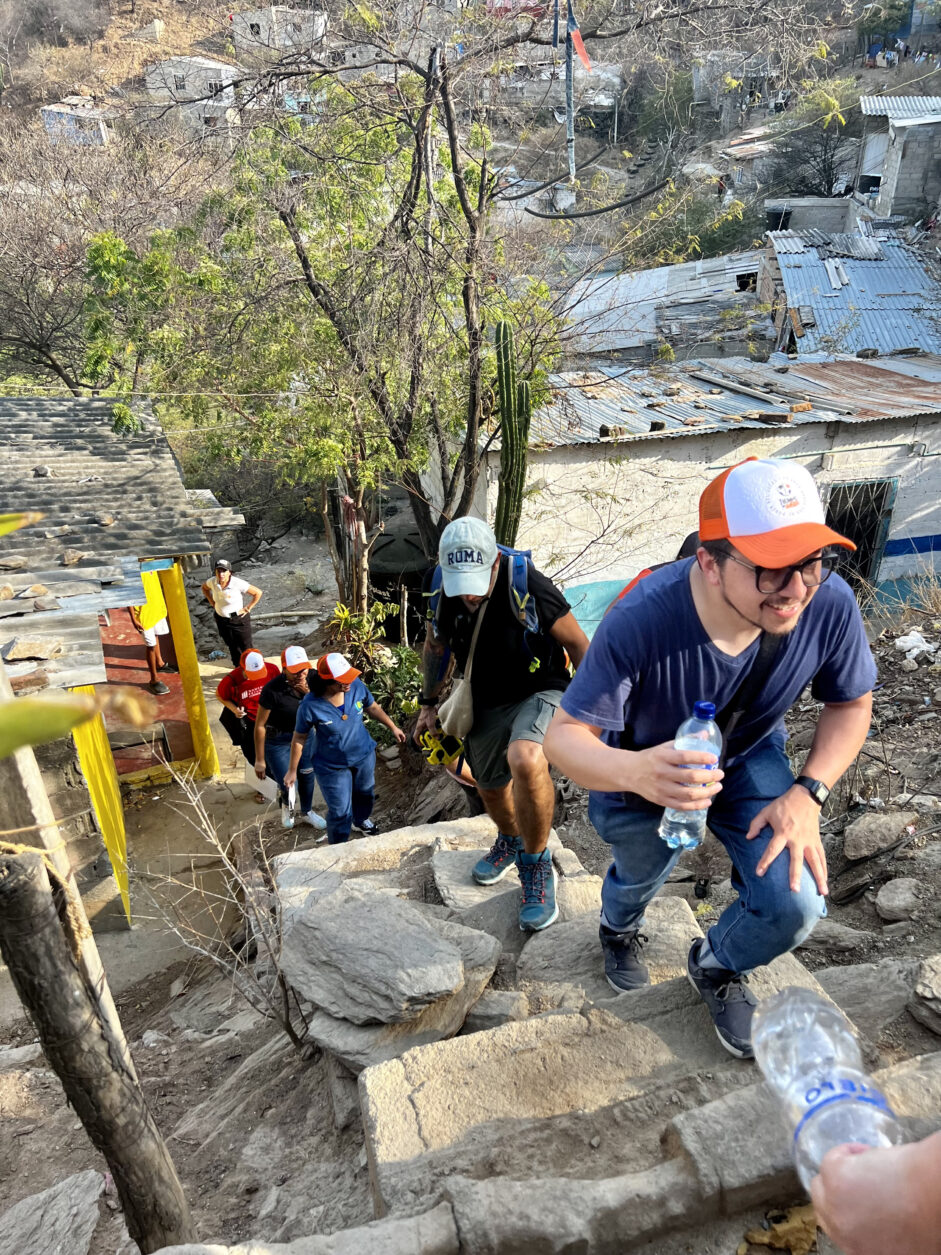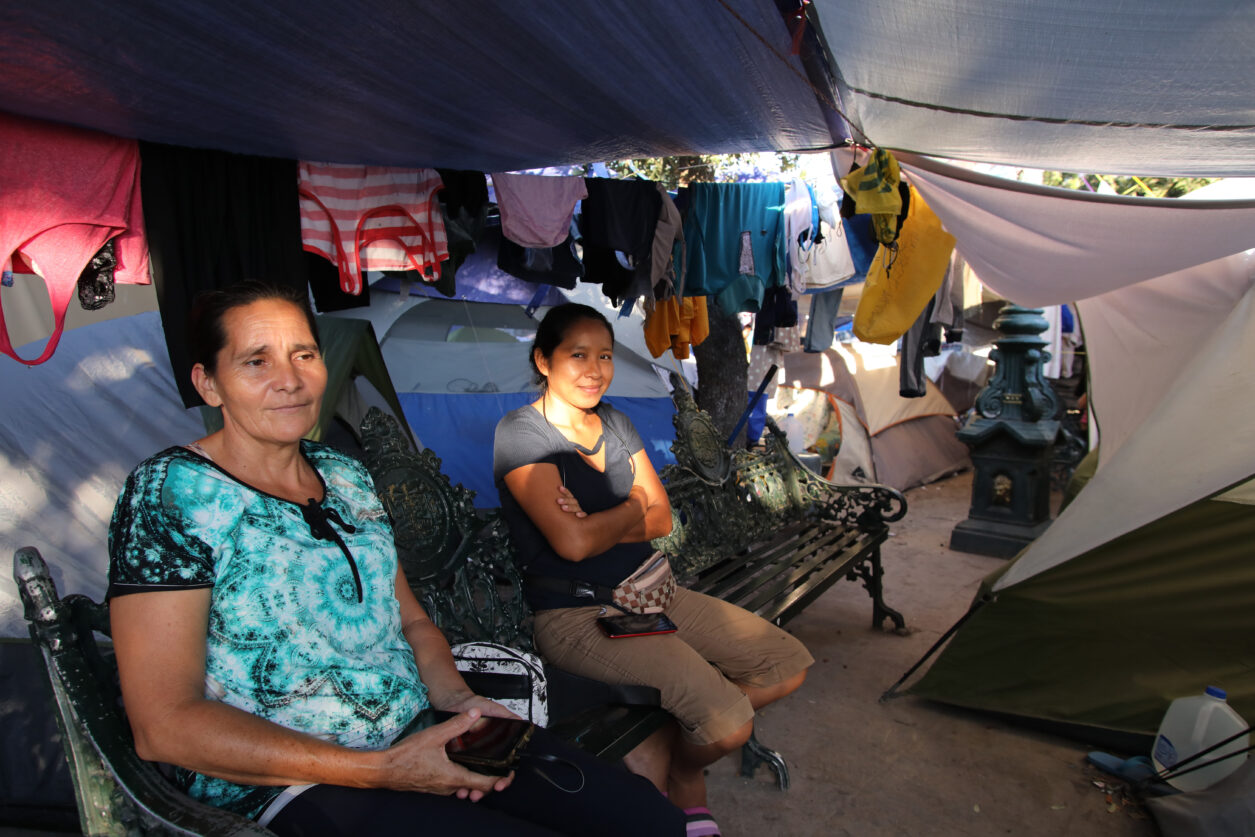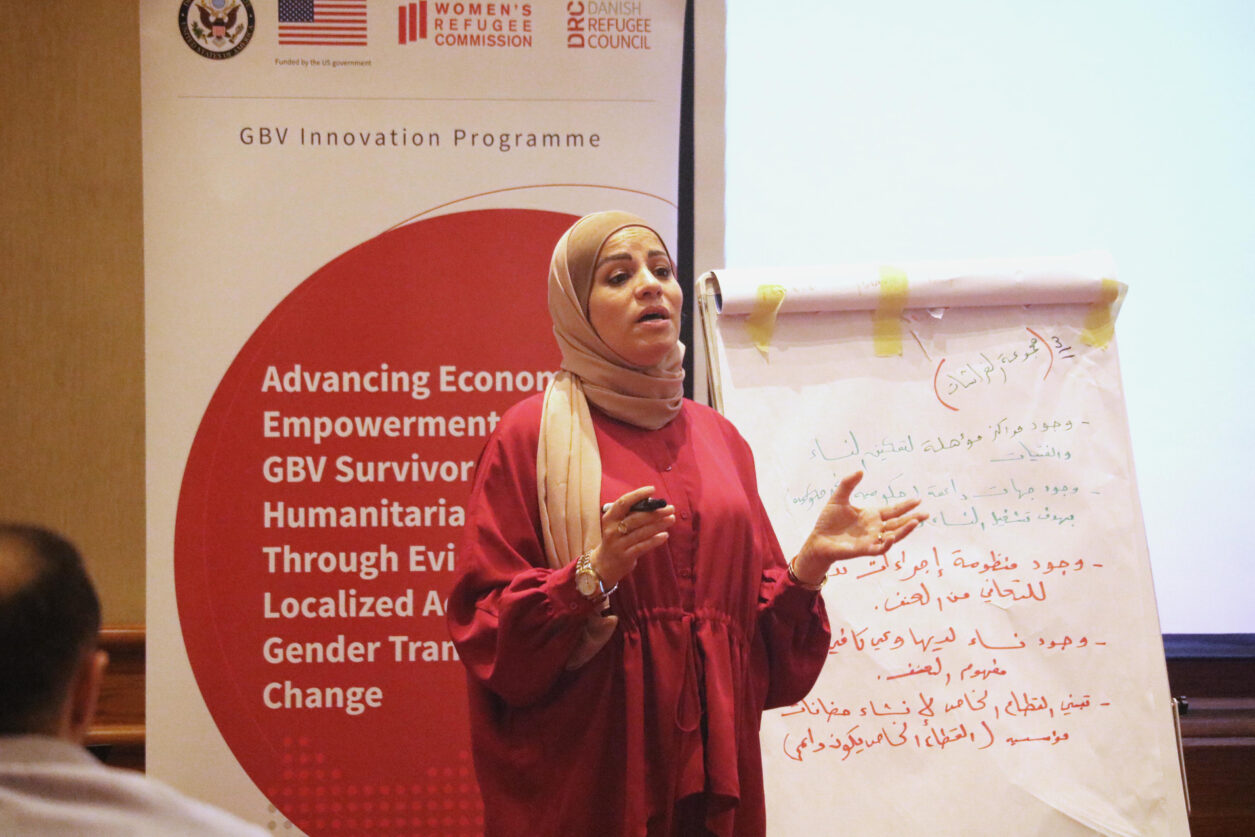In 2024, the Women’s Refugee Commission proudly marked a major milestone—our 35th anniversary. For three and a half decades, WRC has been at the forefront of advancing gender equality and transforming humanitarian systems to better serve women, children, youth, and other marginalized groups forced to flee their homes due to conflict and crisis.
Today, the humanitarian landscape stands at a pivotal juncture. Global funding cuts and the growing backlash against women’s rights are threatening critical, lifesaving services—from sexual and reproductive health care to gender-based violence prevention and support for adolescent girls’ education and empowerment.
In the face of these growing challenges, our commitment is stronger than ever. We remain unwavering in our mission to protect the dignity, safety, and rights of women and girls affected by crisis. By working directly with displaced communities, we ensure that our programs and advocacy reflect their lived experiences, amplify their voices, and strengthen their resilience. This people-centered approach has guided our work since the beginning—and remains at the heart of everything we do.
Our impact is made possible through powerful partnerships. We work hand in hand with governments,the Unit ed Nations, civil society, women- and refugee-led organizations, media, and generous supporters like you. These collaborations enable us to scale local solutions, drive policy change, and ensure that global action aligns with the priorities of the communities we serve.
In 2024, we achieved meaningful progress in advancing gender equality and inclusion, strengthening humanitarian policy and practice, and developing innovative tools to support displaced women and girls. Together with our partners and the extraordinary resilience of crisis-affected women and youth, we made real strides toward a more just and inclusive future.
In this report, I invite you to explore highlights from the past year—milestones made possible by your unwavering support.
The road ahead will be challenging. But with your continued partnership, WRC will continue to champion the rights of displaced women and girls—ensuring their voices are heard, their needs are met, and their potential is realized.
With gratitude,







